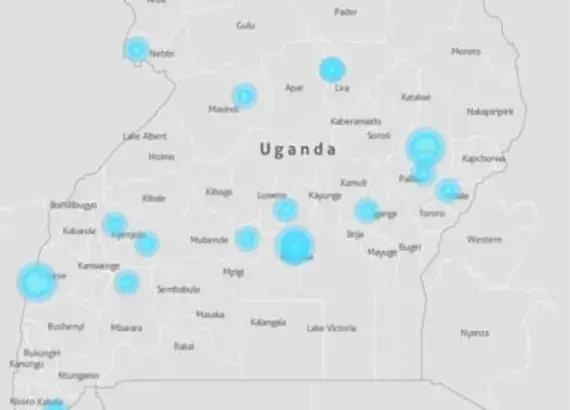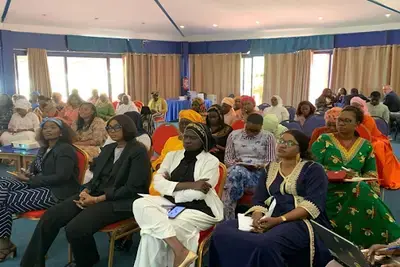
Success Story
Citizen Hotline Launched Ahead of Ugandan Elections
During 2006 elections in Uganda, international observers and domestic monitors reported significant violations of electoral law and protocol, including disenfranchisement of voters, counting and tallying irregularities, the use of state funds for campaign activities and the incarceration of political opposition leaders. As February 2011 elections approach, efforts are underway to head off potential repetition of these problems and violations.
DEMGroup and Citizens Coalition for Electoral Democracy, domestic election monitoring organizations, are carrying out a comprehensive monitoring strategy that includes a citizen hotline.
During 2006 elections in Uganda, international observers and domestic monitors reported significant violations of electoral law and protocol, including disenfranchisement of voters, counting and tallying irregularities, the use of state funds for campaign activities and the incarceration of political opposition leaders. As February 2011 elections approach, efforts are underway to head off potential repetition of these problems and violations.
DEMGroup and Citizens Coalition for Electoral Democracy (CCEDU), domestic election monitoring organizations, are carrying out a comprehensive monitoring strategy that includes a citizen hotline, entitled “Uganda Watch 2011.” Ugandans can use the hotline, launched this month to text in concerns about the integrity of the electoral process. That information will be collected and organized by DEMGroup and CCEDU monitors and digitally mapped at http://www.ugandawatch2011.org/. The maps allow users to sort by issue and region, letting the public see which electoral problems are most prevalent and which parts of the country are experiencing the greatest numbers of incidents. Text messages can be received in a variety of Ugandan languages and are translated to English for wider audiences.
Over 140 Ugandans have been trained to publicize the hotline throughout the country. Within a few weeks of the launch the hotline received over 300 text messages expressing concerns about a range of issues including the registration process, ghost voters and national ID cards. DEMGroup and CCEDU staffers will follow up on the messages for further investigation and verification.
To complement that effort, DEMGroup and CCEDU will also hold feedback sessions throughout the country so that particular complaints or trends are highlighted and so citizens can participate in electoral reform efforts. The feedback sessions, which will include representatives from the government, political parties, the Electoral Commission and civil society, will be recorded and played on radio stations in all regions of Uganda. NDI has provided technical assistance and support on development of the hotline and analysis of the information collected.
The use of new technologies is part of a shift occurring in election monitoring around the world that is moving from anecdotal and impressionistic evaluations of electoral processes to data-focused and information rich assessments. NDI is among the leaders in this movement with the use of parallel vote tabulations (PVT) to provide independent vote counts as a check on election authorities. DEMGroup, with technical assistance from NDI, is likely to complete a data-backed analysis of voting results on election day in Uganda.
“Citizen reporting, including using crowdsoursing and other technologies, can significantly increase public engagement in electoral activity and improve potentials for accountability,” said Ian Schuler, a program manager for NDI’s information and communications technology team. “The citizen hotline in Uganda is a visionary program. It’s happening in part because we have good partners and Uganda itself is one of the more tech-savvy places on the continent, so it’s a good environment to be piloting new technologies.”
NDI’s country director in Uganda, Heather Kashner, stressed the importance of implementing programs like the citizen hotline to increase citizen participation and promote government accountability.
“The citizen hotline is a way to try to make a change fast, make it big, and get it to more people than otherwise exist outside traditional power structures,” Kashner said, “it’s crucial that we include as many people as possible in ensuring a peaceful and reliable electoral process.”
Pictured Above: Concerns from Ugandan citizens about the election process are collected and digitally mapped at http://www.ugandawatch2011.org/.
Published June 29, 2010



